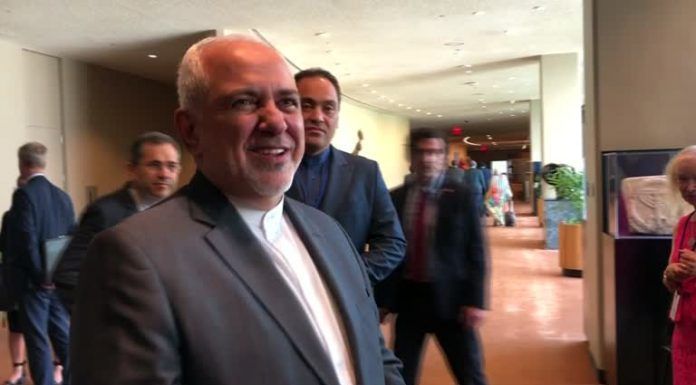WASHINGTON, July 18 (Reuters) – Iran on Thursday offered to ratify a document prescribing more intrusive inspections of its nuclear program if the United States abandoned its economic sanctions, the Guardian newspaper reported on Thursday, in a proposal that drew U.S. skepticism.
Iran could ratify the “Additional Protocol” that gives U.N. inspectors more tools to verify its nuclear program is peaceful immediately if Washington also abandoned the sanctions on Iran, the newspaper quoted Iranian Foreign Minister Mohammad Javad Zarif as telling reporters in New York.
“If (U.S. President Donald) Trump wants more for more, we can ratify the Additional Protocol and he can lift the sanctions he set,” Zarif said, according to the report.
However, Iran is already implementing the protocol, so it was not clear that Zarif’s offer constituted a concession.
A U.S. official reacted skeptically, saying Iran was seeking to get sanctions relief without offering much in return.
“Their whole game is to try to get any sanctions relief they can while maintaining the ability to get a nuclear weapon in the future,” said the U.S. official on condition of anonymity.
The official said Iran was “trying to spin a small action into” something that might appear to be a big concession. The official noted that under the offer, Iran would keep enriching uranium and would do nothing to rein in its support for regional proxies in Yemen, Iraq, Syria and Lebanon.
The 1993 Additional Protocol increases the ability of the International Atomic Energy Agency, the Vienna-based U.N. nuclear watchdog, to verify that nuclear facilities are peaceful through inspections and other means.
Under the nuclear deal that Iran struck with six major powers in 2015 – and that Trump abandoned last year – Iran must also seek ratification of the Additional Protocol eight years after the deal was adopted, at the same time that the United States was obliged to seek permanent termination of many sanctions on Iran.
(Reporting by Steve Holland, Arshad Mohammed and Michelle Nichols at UNITED NATIONSEditing by Mary Milliken and Cynthia Osterman)


